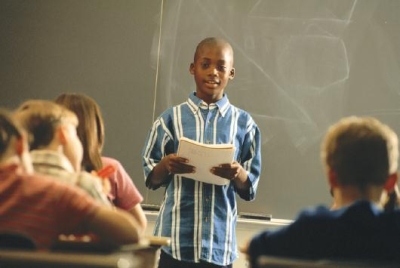by: Mark Onofrio
January 07, 2014
Youth are the real experts on what is happening in bullying on school campuses, and yet their voices, perspectives and leadership are rarely integrated into bullying prevention programs.
“Just ask the kids” is the tagline for a new book highlighting research from the Youth Voice Project, the first large-scale research project on bullying and peer mistreatment that did exactly that—ask the kids (more than 13,000 teens in 31 schools). And when you think about it, isn’t it obvious?
For the nearly 25 years of implementing training and workshops nationally with youth of all ages through ADL’s A WORLD OF DIFFERENCE® Institute, the students regularly echo the same sentiment. “Adults don’t understand.” And “No one listens to us.”
For ADL, involving students was a no-brainer and integral to our work. Using student voices as a part of the solution is a strength that schools everywhere should be utilizing. One example of that strength was highlighted when four youths, all student leaders from Grissom High School in Huntsville, AL, presented on the impact of ADL’s No Place for Hate® campaign initiative at the International Bullying Prevention Association Conference.
Even more important than the specifics the students shared about the great work they have done in implementing their No Place for Hate initiative, the students provided very thoughtful and important advice about what adults can—and need—to do to better support students in creating an inclusive and welcoming school culture.
More than anything, they said, students want the adults in their schools to be better role models, and to take these issues as seriously as the students. We can’t ask students to make a commitment that the adults are not also making!
The Grissom High School team looks forward to sharing this presentation at other faculty meetings and venues. They have also asked to be part of a group to review and revise their district’s anti-bullying policy.
And once you have student experts, THEY can help design and lead programs for families. Adult family members will come out more often when their kids have a role in a program, so it’s a great way to get parent and family involvement, and open that important dialogue among family members.
It takes real, honest dialogue among students AND adults to make lasting and significant changes.
For more ideas about what students think teachers should know, check out ADL’s tips on 10 Things Student Wish Teachers Knew.










